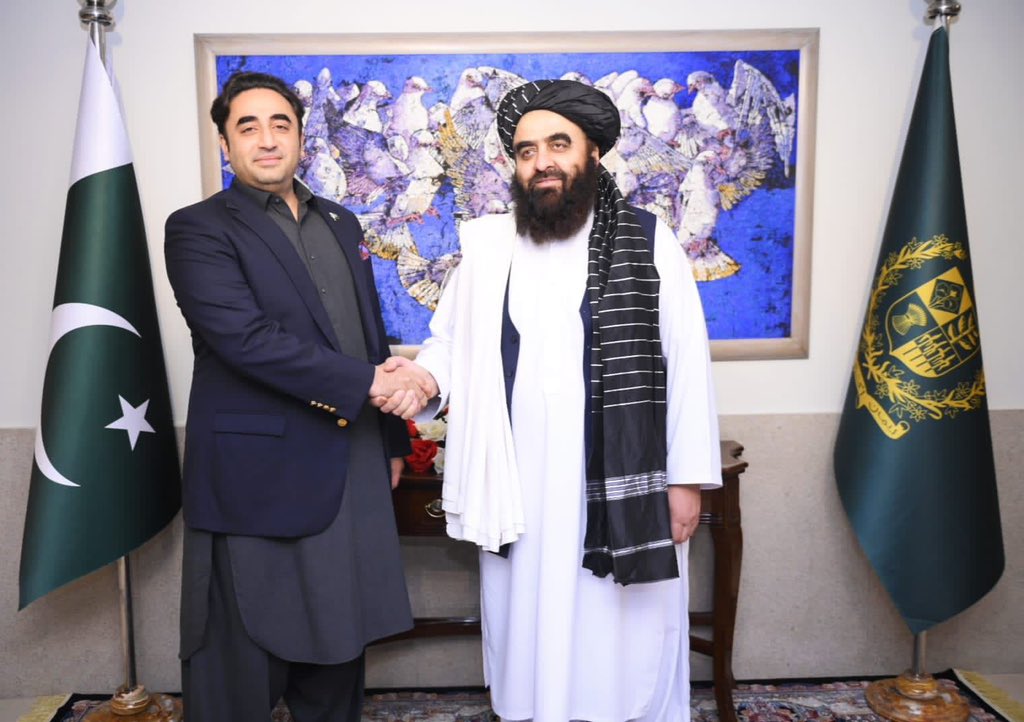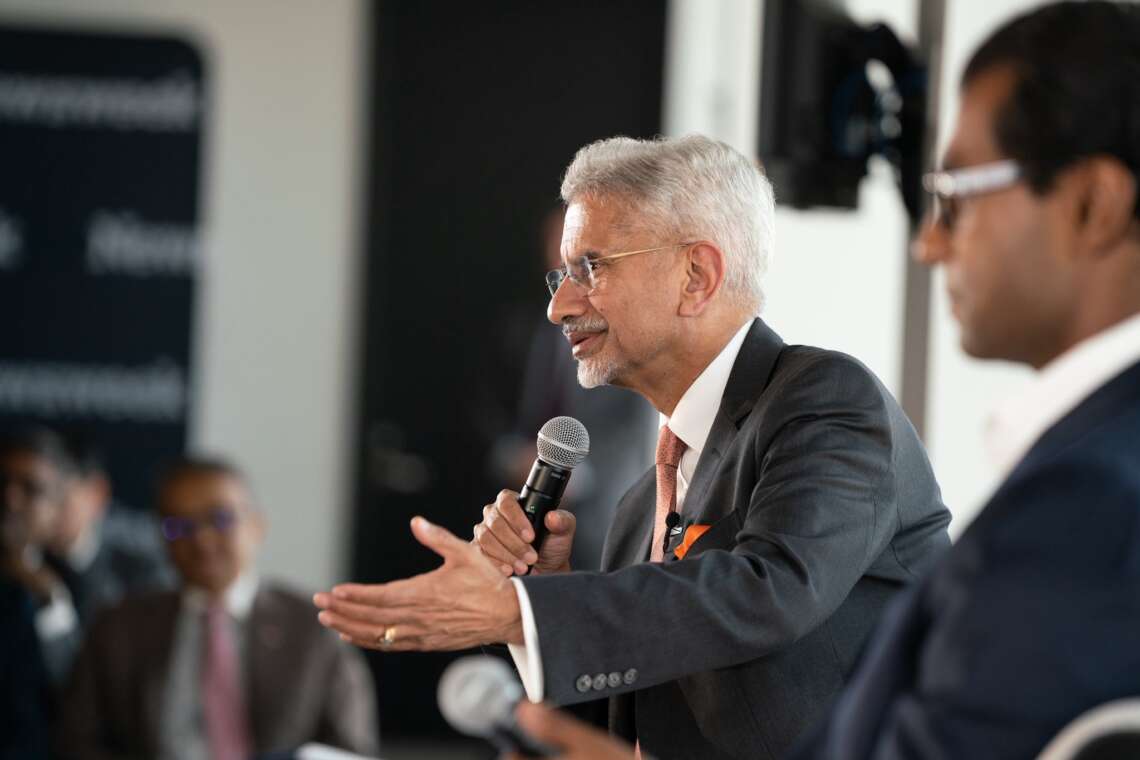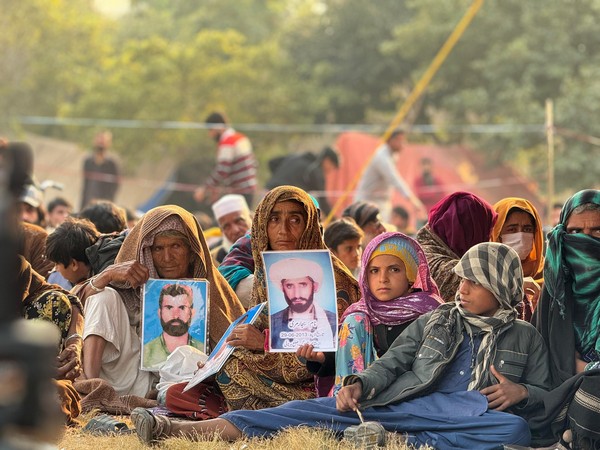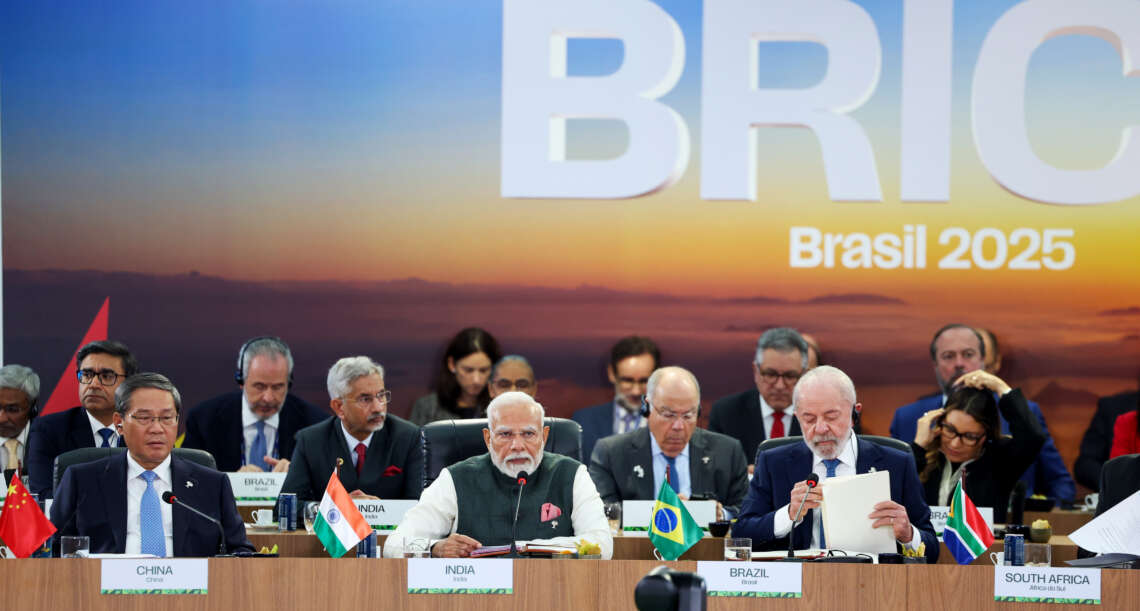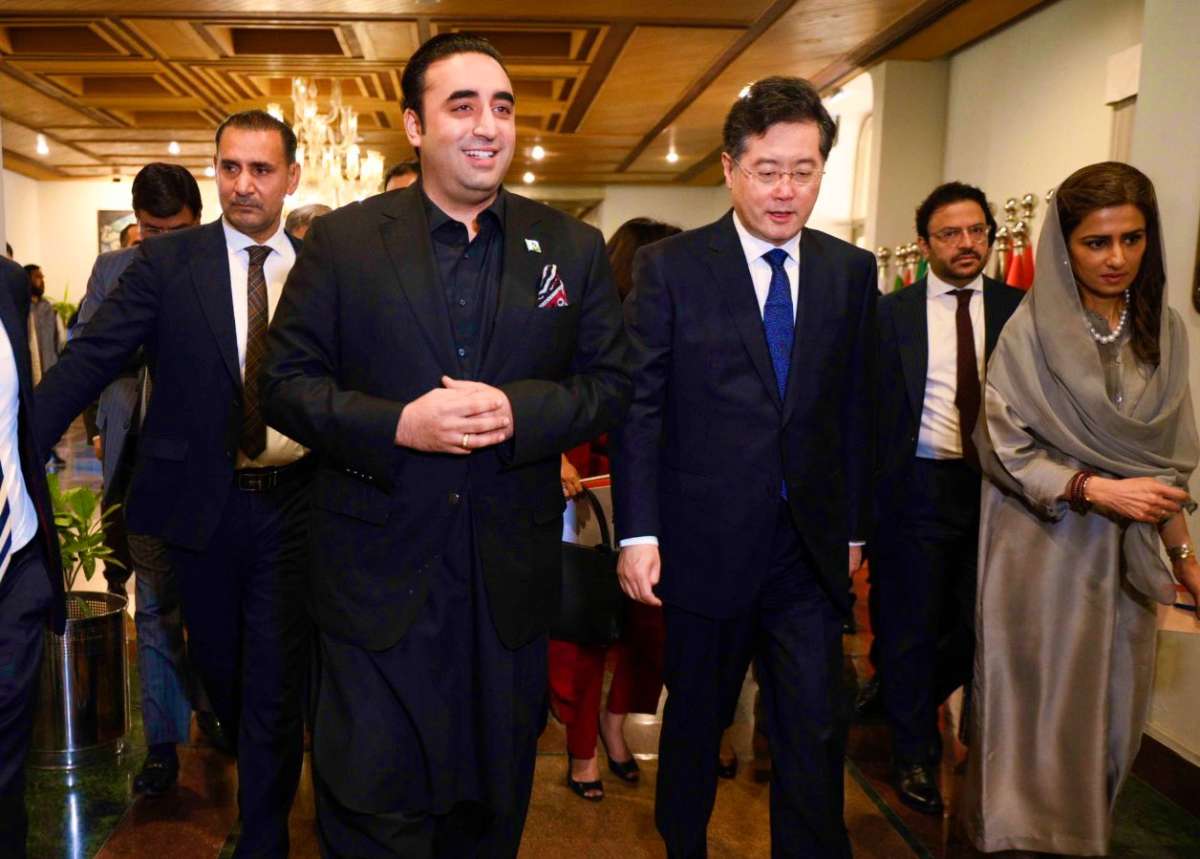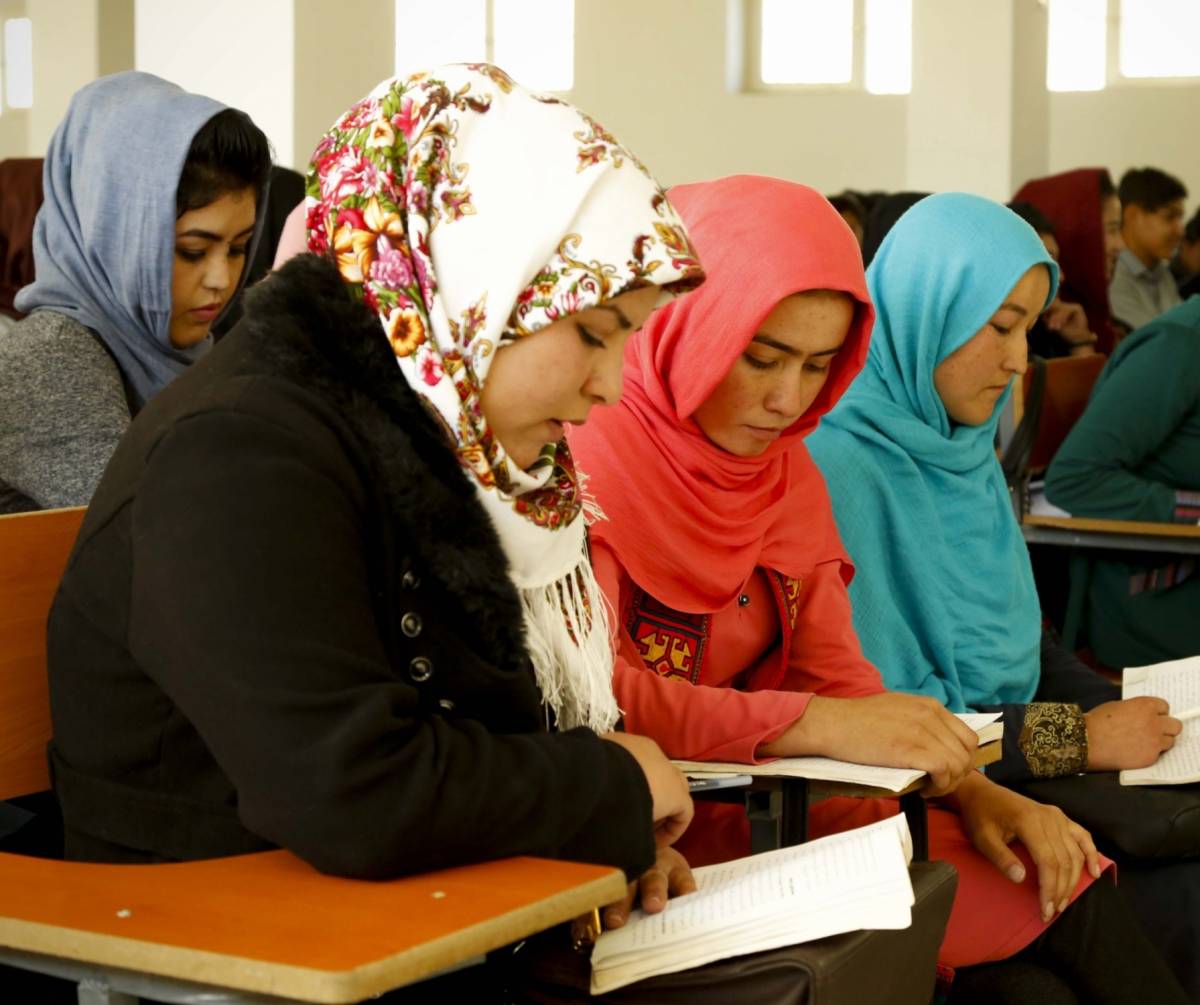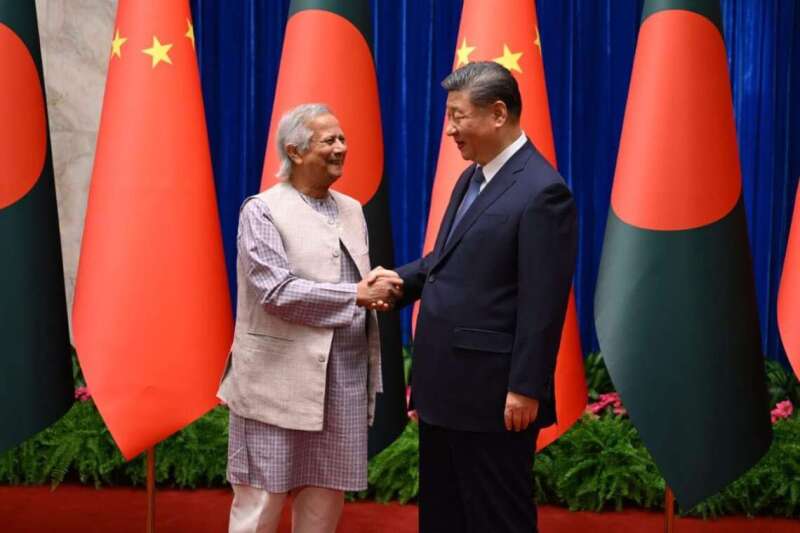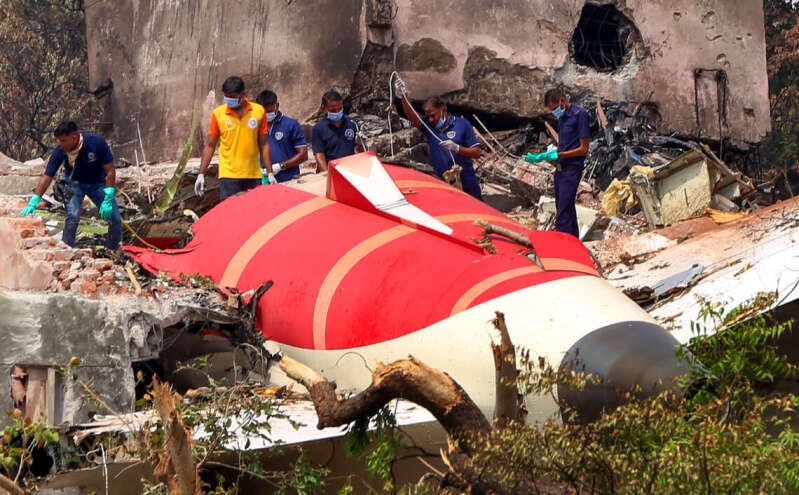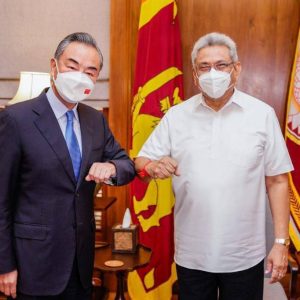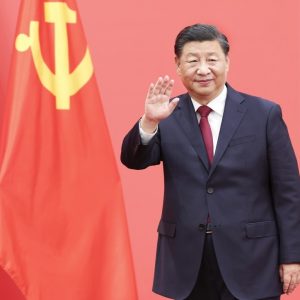Pakistan hosted a day-long trilateral dialogue with China and Afghanistan in Islamabad after the arrival of the Chinese and Afghan foreign ministers, Qin Gang and Mawlawi Amir Khan Muttaqi…reports Asian Lite News
Taliban’s acting Foreign Minister Amir Khan Muttaqi and Pakistan Foreign Minister Bilawal Bhutto Zardari on Sunday discussed bilateral trade and security cooperation during a meeting in Islamabad, reported Pajhwok Afghan News.
The two sides held a candid and in-depth exchange on key issues of mutual concern, including peace and security, as well as trade and connectivity. The Foreign Ministers reaffirmed their desire to pursue continuous and practical engagement, read a statement from the Pakistani Foreign Office. Muttaqi has long been subjected to a travel ban, asset freeze and arms embargo under Security Council sanctions.
According to a letter to the 15-member Security Council, Taliban sanctions committee, Pakistan’s UN mission requested an exemption for Muttaqi to travel between May 6-9 “for a meeting with the foreign ministers of Pakistan and China.”
Pakistan hosted a day-long trilateral dialogue with China and Afghanistan in Islamabad after the arrival of the Chinese and Afghan foreign ministers, Qin Gang and Mawlawi Amir Khan Muttaqi.
This was the Chinese foreign minister’s first visit to Pakistan, Muttaqi last travelled to Pakistan in November 2021, just a few months after the Afghan Taliban took control in Kabul.
Chinese and Pakistani officials have both said in the past that they would welcome Taliban-led Afghanistan into the multibillion-dollar China-Pakistan Economic Corridor (CPEC) infrastructure project, part of the Belt and Road Initiative.
On peace and security, the Foreign Ministers emphasized the need for enhanced coordination to counter terrorism and deepen bilateral cooperation, read the statement.
Regarding bilateral and transit trade, the two sides stressed the importance of removing trade impediments to advance the goal of enhanced regional economic integration and connectivity.
Meanwhile, Muttaqi acknowledged Pakistan’s role in establishing peace in Afghanistan while talking to Army Chief General Syed Asim Munir during a meeting at GHQ in Rawalpindi, reported Radio Pakistan.
The visit to Pakistan by the Afghan minister comes in the same week the UN hosted a conference on Afghanistan in Doha, Qatar, without inviting the country’s Taliban rulers.
Addressing the Doha conference on May 2, UN Secretary-General Antonio Guterres condemned the Taliban’s suppression of women’s rights in Afghanistan, including the ban on education.”Let me be crystal clear, we will never be silent in the face of unprecedented systemic attacks on women’s and girls’ rights. We’ll always speak out when millions of women and girls are being silenced and erased from sight,” Guterres said.
The UN chief was categorical that the Taliban would not be recognised as the rulers of Afghanistan.
“The meeting was about developing a common international approach, not about recognition of the de facto Taliban authorities,” Guterres told reporters in Doha.
Pakistan maintains close ties with its northwestern neighbour. The two countries share a 2,600 km-long (1,660 miles) border, also known as the Durand Line.
Muttaqi’s visit comes at a time when Pakistan has seen a dramatic increase in violent attacks in the northwestern province of Khyber Pakhtunkhwa and the southwestern region of Balochistan, both of which border Afghanistan.
Authorities in Pakistan allege the attacks are launched from within Afghan territory by Tehreek-e-Taliban Pakistan (TTP), an armed group ideologically aligned with the Afghan Taliban.
China, the third participant in the dialogue, also has significant interests in the other two countries.
Beijing is Pakistan’s key economic and defence partner and has invested heavily in Pakistan, headlining USD 60 billion in the ambitious China-Pakistan Economic Corridor (CPEC) project.
However, multiple attacks by armed groups have targeted Chinese nationals and their interests in Pakistan in recent years. (ANI)


